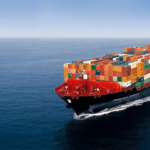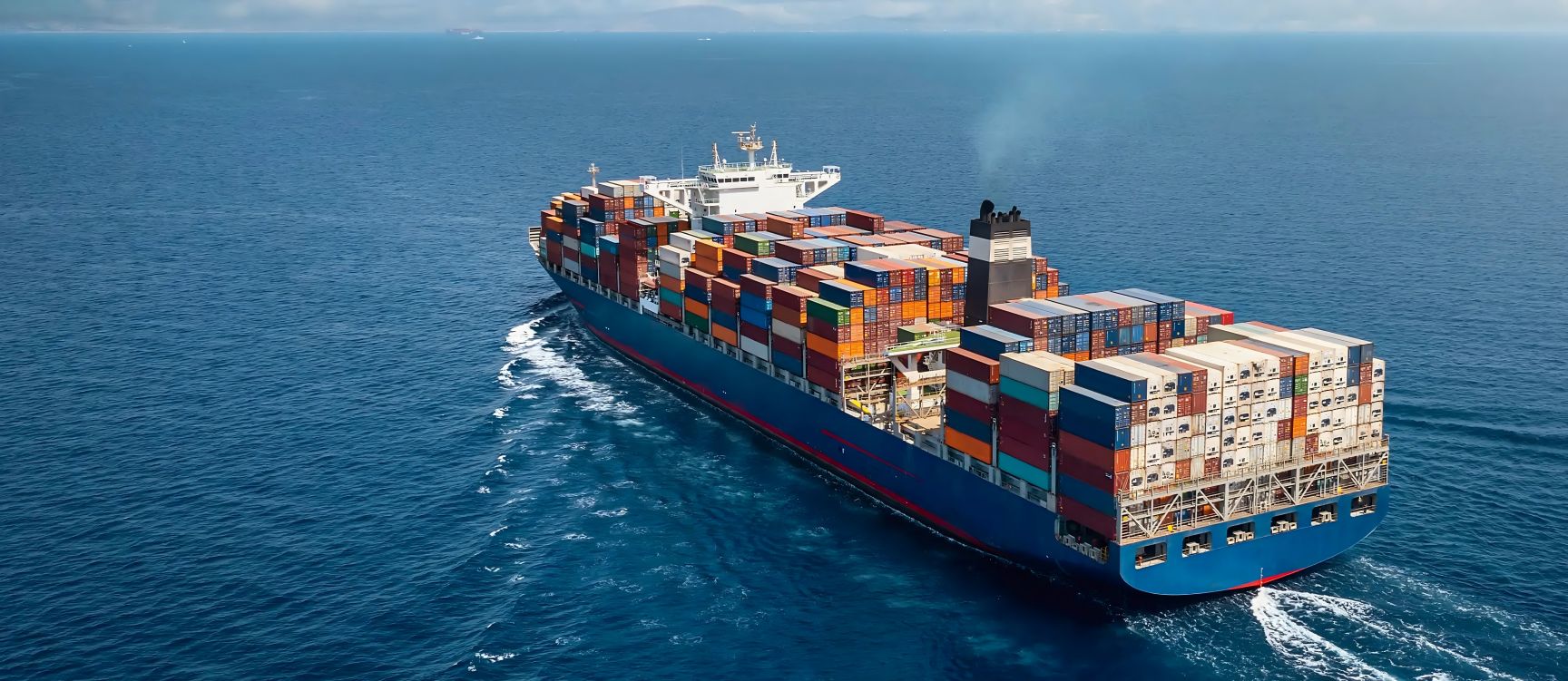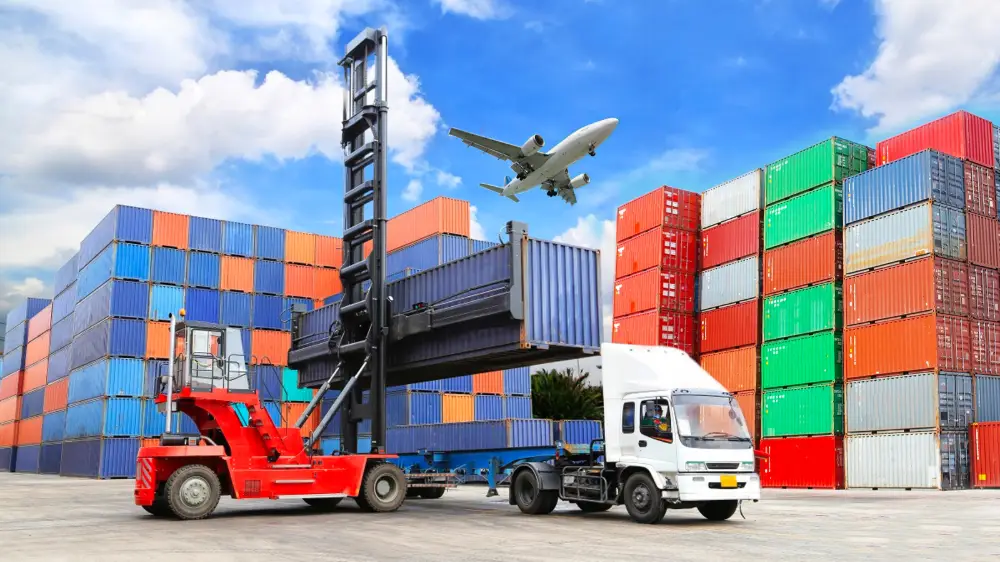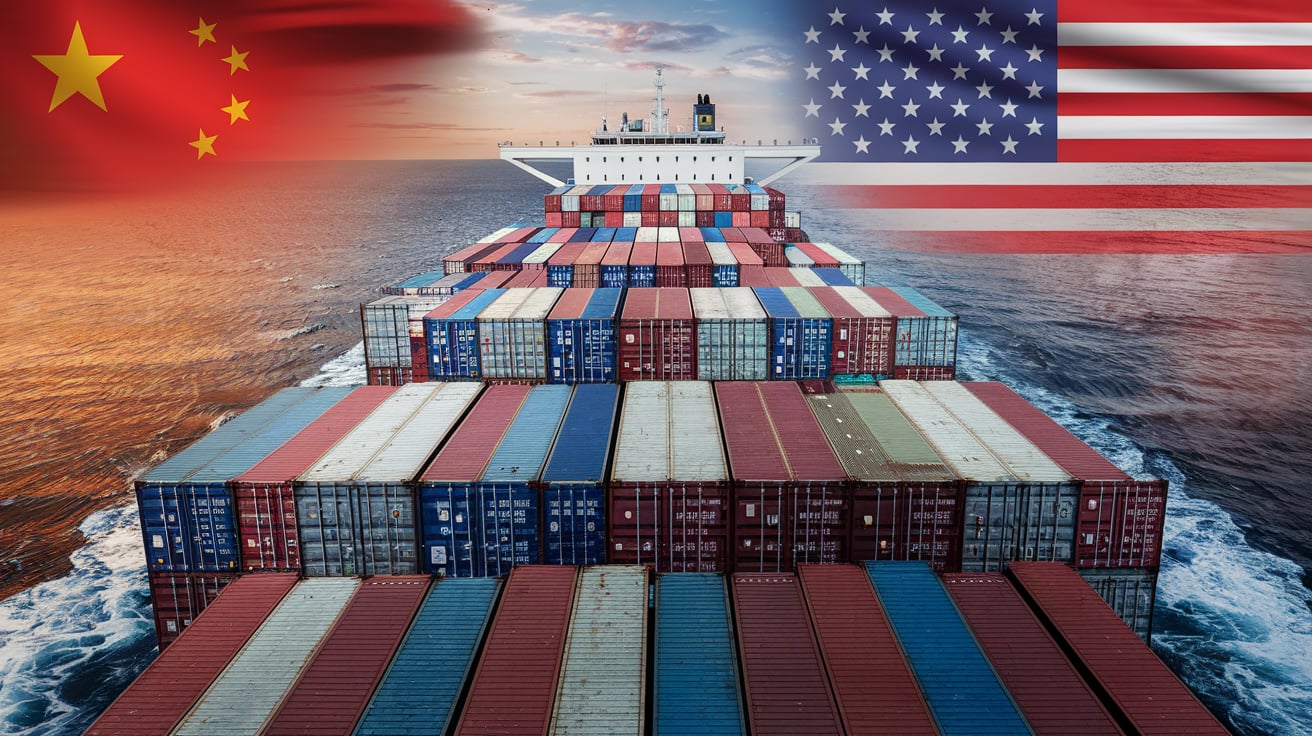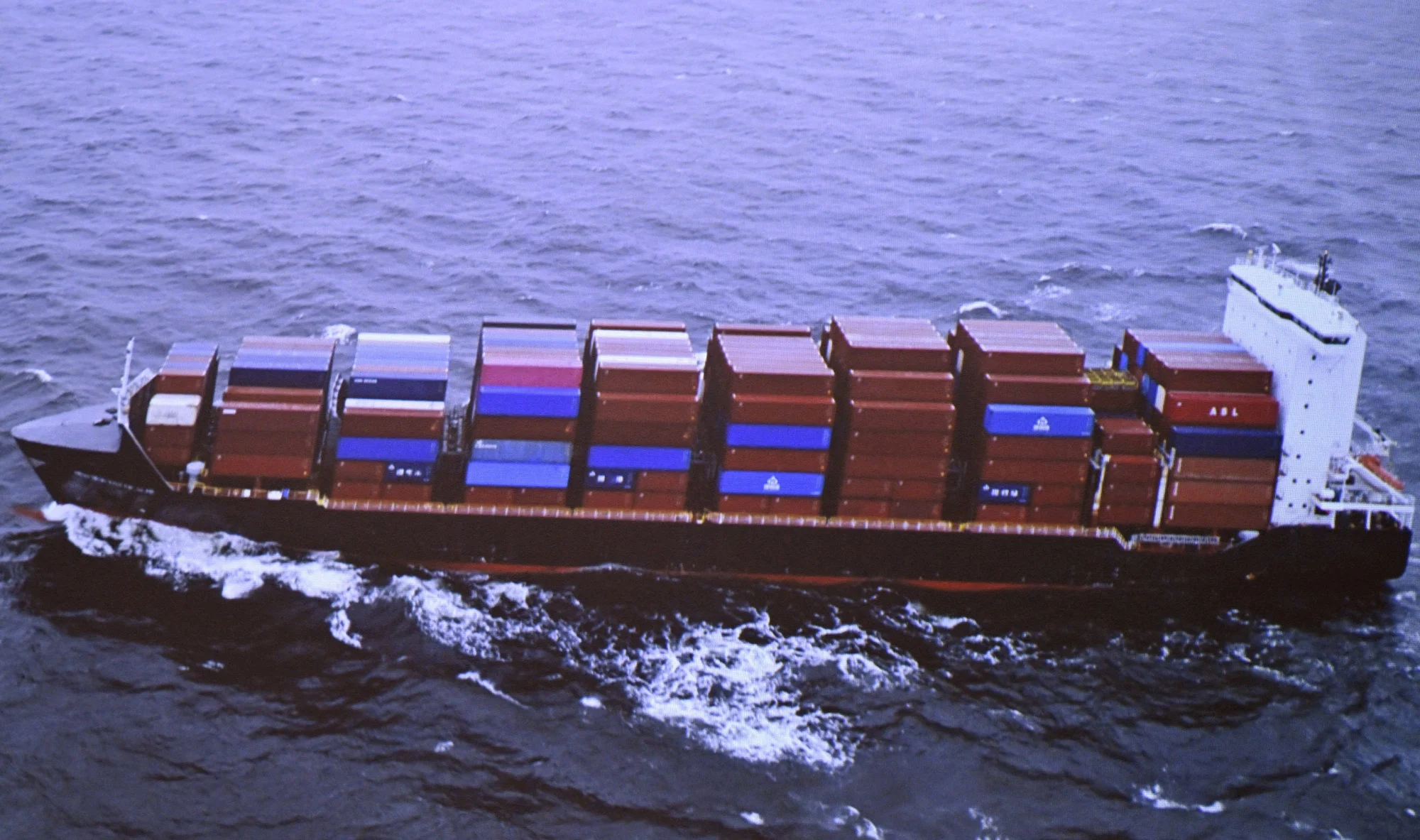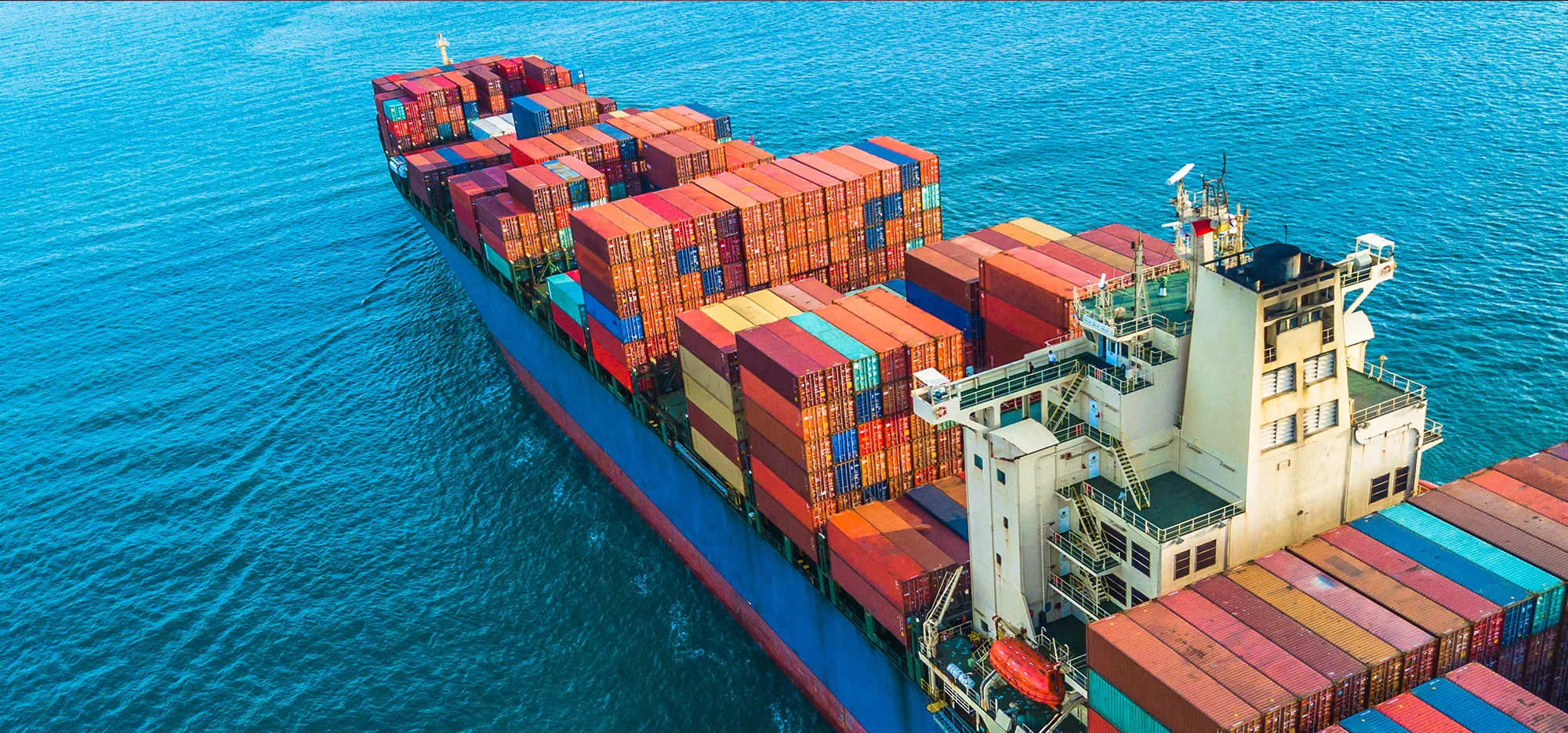Navigating the complexities of international trade can be daunting, especially when it comes to shipping goods from China to the United Kingdom. The choice of a freight forwarder plays a pivotal role in ensuring a smooth and efficient transportation process. With a myriad of shipping options available, from air freight for urgent deliveries to sea freight for large shipments, understanding the various services and factors involved is essential for making informed decisions. This guide explores the significance of selecting the right freight forwarder, the key responsibilities they undertake, and the challenges you may encounter while importing goods. By equipping yourself with this knowledge, you can streamline your logistics operations and foster a successful trading relationship across borders.
Related Article : Shipping From China to United Kingdom
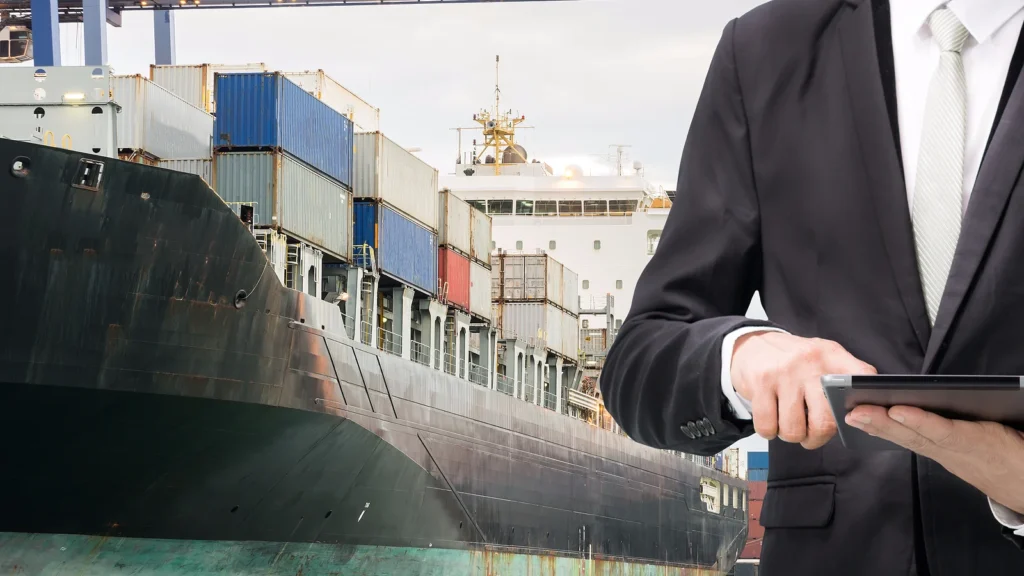
Understanding Freight Forwarding Services
A freight forwarder is a crucial intermediary in international trade, responsible for facilitating the transportation of goods from one location to another. They manage the logistics of the shipping process on behalf of importers and exporters, providing a comprehensive range of services that streamline the shipping of goods across borders. Freight forwarders are not carriers themselves but coordinate the movement of goods through various modes of transport, ensuring compliance with regulations and minimizing delays.
Key Responsibilities and Services Offered
Freight forwarders perform a multitude of functions that encompass the entirety of the shipping process. Their key responsibilities include:
-
Transportation Arrangement: Coordinating the best mode of transport, whether by air, sea, or land, to ensure timely delivery.
-
Customs Clearance: Managing all necessary documentation and compliance with customs regulations to avoid delays in shipment.
-
Cargo Insurance: Offering insurance services to protect against potential loss or damage during transit, thus providing peace of mind to the shipper.
-
Warehousing Services: Providing storage solutions to hold goods before they are shipped or after they arrive, ensuring a fluid supply chain.
-
Documentation Management: Handling essential shipping documents such as bills of lading, invoices, and packing lists, which are crucial for smooth customs clearance.
-
Door-to-Door Shipping Services: Facilitating the collection of goods from the supplier’s location and delivering them directly to the buyer’s address, enhancing convenience for both parties.
Understanding these responsibilities helps businesses leverage the expertise of freight forwarders like Dantful International Logistics, which offers a highly professional, cost-effective, and high-quality one-stop international logistics service for global traders.
Shipping Options from China to the United Kingdom
When importing goods from China to the United Kingdom, it is vital to select the most suitable shipping option based on the nature of the goods, urgency, and budget constraints. Below are the primary shipping methods available:
Air Freight
Transit Times and Costs
Air freight is often the preferred choice for urgent shipments due to its speed. Typical transit times from China to the UK are between 3 to 7 days, depending on the specific origin and destination, as well as the chosen carrier. However, air freight tends to be more expensive than sea freight, with costs fluctuating based on factors such as weight, volume, and current fuel prices. A cost comparison is summarized below for better clarity:
| Shipping Method | Average Transit Time | Average Cost (per kg) |
|---|---|---|
| Air Freight | 3-7 days | $5-$10 |
| Sea Freight | 20-40 days | $0.50-$2 |
Major Airports and Airlines
The primary airports that facilitate air cargo from China to the UK include:
- Beijing Capital International Airport (PEK)
- Shanghai Pudong International Airport (PVG)
- Guangzhou Baiyun International Airport (CAN)
Leading airlines that operate these routes include:
- British Airways
- China Eastern Airlines
- Cathay Pacific
These airlines provide reliable and frequent services, allowing for flexible scheduling.
Sea Freight
FCL (Full Container Load) vs. LCL (Less than Container Load)
Shipping by sea is more cost-effective for larger shipments, especially when comparing FCL and LCL options:
-
FCL: When you have enough goods to fill an entire container, this option is typically more economical and reduces the risk of damage.
-
LCL: Ideal for smaller shipments where you share container space with other shippers. While this option is cheaper for small loads, it involves handling fees and longer transit times due to additional stops.
Main Ports and Shipping Routes
The primary seaports for shipments from China to the UK include:
- Port of London
- Port of Southampton
- Port of Felixstowe
Common shipping routes involve transiting through major international shipping lanes, with many vessels navigating through the Suez Canal.
Express Shipping for Urgent Cargo
For time-sensitive shipments that require immediate delivery, express shipping services are available. This service is designed to expedite the process, reducing transit times significantly — often to as little as 1 to 3 days. Companies like Dantful International Logistics provide these express services, ensuring that urgent cargo is prioritized and delivered efficiently.
By leveraging Dantful’s logistics expertise, importers can effectively navigate the complexities of international shipping while ensuring the timely arrival of their goods in the UK.
In the fast-paced world of international trade, choosing the right freight forwarder can make all the difference in ensuring a seamless supply chain.
You may be interested in the following related articles:
- Shipping From China to Serbia
- Shipping From China to Malta
- Shipping From China To Sweden
- Shipping From China To Belgium
- Shipping from China to Russia
- Shipping From China To Netherlands
- Shipping From China To Spain
- Shipping From China To Germany
- Shipping From China To France
Factors to Consider When Choosing a Freight Forwarder
Selecting the right freight forwarder is critical for ensuring the smooth transport of goods across borders, particularly in the complex landscape of China-United Kingdom trade. Here are the key factors to consider when choosing a freight forwarder:
Experience and Expertise in China-United Kingdom Trade
The freight forwarder’s experience and knowledge of trade nuances between China and the UK can significantly impact the shipping process. Understanding local regulations, customs procedures, and market conditions will help streamline operations and reduce potential issues. A forwarder familiar with the intricacies of both markets can provide invaluable insights, ensuring compliance and optimizing logistics.
Range of Services Offered
A comprehensive range of services is essential for addressing various shipping needs. Choose a freight forwarder that offers services such as:
- Air freight and ocean freight options
- Customs clearance handling
- Warehousing services
- Insurance services
- Door-to-door shipping
Having a one-stop logistics provider, such as Dantful International Logistics, can simplify the process and enhance efficiency by reducing the need to coordinate with multiple service providers.
Network and Partnerships in Both Countries
A well-established network of partners, including carriers, agents, and warehouses, is crucial for ensuring reliable transport solutions. A freight forwarder with strong relationships in both China and the UK can facilitate smoother operations, better pricing, and faster transit times. It is advisable to verify their connections and partnerships, as these can be indicative of their capability to navigate logistics challenges effectively.
Pricing and Cost Transparency
Transparent pricing structures allow you to understand the total cost of logistics without hidden fees. Evaluate the freight forwarder’s pricing model, looking for:
- Breakdown of costs (e.g., shipping, customs, handling fees)
- Any additional charges that may apply
- Comparison of costs for various shipping methods (e.g., air freight vs. sea freight)
This transparency enables you to make informed decisions and budget accordingly, ensuring you select a service that delivers value for money.
Communication and Customer Service
Effective communication is crucial in freight forwarding. A good freight forwarder should provide clear, prompt responses to inquiries and updates throughout the shipping process. Evaluate their customer service by considering:
- Availability of support (24/7 vs. regular business hours)
- Responsiveness to queries
- The proficiency of staff in addressing concerns
Establishing a good communication channel can prevent misunderstandings and allow for efficient troubleshooting when issues arise.
Technology and Tracking Capabilities
In today’s digital age, technology plays a pivotal role in logistics. A freight forwarder that utilizes modern tracking solutions can provide real-time updates on shipment status, enhancing transparency and confidence. Look for:
- Online tracking systems
- Digital communication tools for updates
- Integration with your logistics systems for seamless information exchange
These capabilities can significantly enhance operational efficiency and peace of mind throughout the shipping process.
Customs Clearance Expertise
Navigating customs regulations is one of the most critical aspects of international shipping. A forwarder with deep expertise in customs clearance processes can help ensure compliance with regulations and expedite the clearance of goods. This expertise should include:
- Knowledge of tariffs and duties applicable to the shipment
- Familiarity with the necessary documentation
- Ability to manage customs audits or inspections
Effective customs management can minimize delays and reduce costs associated with penalties or unexpected tariffs.
Insurance Options
Insurance is a vital component of shipping, providing protection against potential loss or damage to goods in transit. Assess the insurance options offered by the freight forwarder, such as:
- Types of coverage (e.g., all-risk insurance)
- Limits of liability
- Claims handling processes
By ensuring adequate insurance coverage, you can safeguard your investments and mitigate risks associated with international shipping.
Steps to Select the Right Freight Forwarder from China to United Kingdom
Choosing the ideal freight forwarder involves a methodical approach to ensure that your shipping needs are met effectively. Consider the following steps to guide your selection process:
Assess Your Specific Shipping Needs
Begin by evaluating your shipping requirements. Consider factors such as:
- Type of goods being shipped (e.g., perishable, fragile)
- Volume and frequency of shipments
- Required transit times (standard vs. urgent)
- Budget constraints
Understanding these needs will help you identify a freight forwarder capable of meeting your specific criteria.
Research Potential Forwarders
Conduct thorough research to create a list of potential freight forwarders. Use various sources, including:
- Online reviews and ratings
- Recommendations from industry peers
- Direct inquiries with potential forwarders to gather information
This research will help you build a shortlist of reputable freight forwarders with experience in China-UK trade.
Request and Compare Quotes
Once you have a shortlist, reach out to each forwarder to request detailed quotes. Ensure that quotes include:
- Breakdown of costs for all services
- Estimated transit times
- Payment terms and conditions
Compare these quotes carefully to assess which forwarder offers the best value for your shipping needs. Pay attention not just to price but also to the quality of service and range of offerings.
Check References and Reviews
Before making a final decision, check references and read reviews from previous clients. This step can provide insights into the forwarder’s reliability, professionalism, and customer satisfaction. Consider reaching out to references to inquire about their experiences, focusing on areas such as:
- Timeliness
- Quality of communication
- Handling of issues or claims
Evaluate Communication and Responsiveness
Assess how each freight forwarder communicates during your inquiry process. Timely and clear communication is essential in logistics, so take note of how quickly they respond to your questions and how effectively they convey information. A responsive freight forwarder is likely to provide better service during the shipping process.
Consider a Trial Shipment
If possible, conduct a trial shipment with your selected freight forwarder. This trial allows you to evaluate their performance firsthand and assess their capabilities regarding:
- Communication
- Timeliness
- Handling of documentation and customs clearance
A trial shipment can provide valuable insights that help you make a more informed decision about long-term partnership potential.
By following these steps, you can confidently choose a freight forwarder that aligns with your shipping needs, ensuring a seamless and efficient logistics process from China to the United Kingdom. For a reliable option, consider Dantful International Logistics, which offers a comprehensive range of services tailored to meet diverse shipping requirements.
Common Challenges and How to Avoid Them
Engaging with a freight forwarder can provide numerous advantages, but challenges may arise during the shipping process. Understanding these common challenges and implementing strategies to mitigate them is essential for a successful logistics experience.
Customs Delays and Documentation Issues
One of the most significant challenges faced during international shipping is customs delays. These delays can occur due to various reasons, including incomplete or incorrect documentation. To prevent such issues:
-
Ensure Proper Documentation: Verify that all necessary documents are in order, including commercial invoices, packing lists, and bills of lading. Each document should accurately reflect the shipment details.
-
Stay Informed of Regulations: Familiarize yourself with the customs regulations specific to both China and the UK. Changes in tariffs, duties, or import/export restrictions can impact the clearance process.
-
Work with Experienced Freight Forwarders: Partnering with freight forwarders who have a proven track record in customs clearance can minimize delays. Their expertise will help navigate complex regulations and expedite the process.
Hidden Costs and Fees
Hidden costs can significantly impact the overall shipping budget, leading to unexpected expenses. To avoid surprises:
-
Request a Detailed Quote: Ensure that the freight forwarder’s quote includes a comprehensive breakdown of all fees, such as handling charges, customs fees, and insurance costs. This transparency will help you understand the total expected cost.
-
Clarify Payment Terms: Discuss payment methods and terms upfront to avoid additional fees related to currency conversion, late payments, or processing delays.
-
Inquire About Additional Charges: Ask about potential surcharges that may apply, such as fuel surcharges or terminal handling fees, to gain a complete understanding of the cost structure.
Cargo Damage or Loss
The risk of cargo damage or loss during transit is an inherent challenge in freight forwarding. To minimize these risks:
-
Choose Reliable Carriers: Research and select carriers with a reputation for safe handling and timely deliveries. A freight forwarder with strong relationships with reliable carriers can enhance the safety of your shipment.
-
Purchase Adequate Insurance: Opt for comprehensive insurance services that cover the full value of the goods. This protection is critical in the event of damage or loss during transit.
-
Proper Packaging: Ensure that goods are packaged securely to withstand the rigors of transportation. Use high-quality materials and techniques suited for the specific nature of the items being shipped.
Communication Barriers
Effective communication is paramount in ensuring a smooth shipping process. However, language differences and cultural barriers can impede communication between parties. To bridge these gaps:
-
Establish a Point of Contact: Designate a specific representative within your organization to handle all communications with the freight forwarder. This ensures consistency and clarity in messaging.
-
Utilize Technology: Leverage digital tools and platforms that facilitate communication. Video calls, messaging apps, and project management software can enhance collaboration and reduce misunderstandings.
-
Clarify Terminology: Ensure that both parties understand shipping terminology and abbreviations. A shared glossary can help eliminate confusion and streamline communication.
Tips for a Successful Partnership with Your Freight Forwarder
Building a successful partnership with your freight forwarder is essential for enhancing logistics efficiency and achieving your shipping goals. Consider the following tips to foster a productive relationship:
Clear Communication of Expectations
Setting clear expectations from the outset can significantly impact the partnership’s success. This includes:
-
Defining Key Performance Indicators (KPIs): Establish specific KPIs related to delivery times, cost management, and communication response times. These metrics will serve as benchmarks for evaluating performance.
-
Articulating Service Expectations: Clearly communicate your expectations regarding quality of service, customer support, and overall responsiveness. This clarity will help align both parties’ objectives.
Regular Performance Reviews
Conducting regular performance reviews can help maintain accountability and encourage continuous improvement. This process involves:
-
Scheduled Check-Ins: Establish a routine for performance reviews, whether monthly or quarterly, to evaluate the freight forwarder’s effectiveness. Use this opportunity to discuss successes and areas for improvement.
-
Feedback Mechanism: Create a structured feedback process where both parties can share insights and suggestions. This two-way communication fosters transparency and helps build trust.
Building a Long-Term Relationship
Fostering a long-term partnership can lead to mutual benefits for both your business and the freight forwarder. Consider the following strategies:
-
Establish Loyalty: If the freight forwarder consistently meets your expectations, consider consolidating your shipping needs with them. This loyalty can lead to better pricing and more personalized service.
-
Invest in Relationship Building: Take the time to understand the freight forwarder’s business and challenges. Building rapport can lead to enhanced collaboration and a more responsive service.
-
Explore Additional Services: As your business grows, your logistics needs may evolve. Work with your freight forwarder to explore additional services, such as warehouse services or door-to-door shipping, that can further streamline your supply chain.
By addressing common challenges and nurturing a cooperative relationship, you can maximize the benefits of working with a freight forwarder. For comprehensive support in logistics, consider partnering with Dantful International Logistics, which offers a broad range of services tailored to meet the unique needs of businesses engaged in international trade.

Young Chiu is a seasoned logistics expert with over 15 years of experience in international freight forwarding and supply chain management. As CEO of Dantful International Logistics, Young is dedicated to providing valuable insights and practical advice to businesses navigating the complexities of global shipping.








